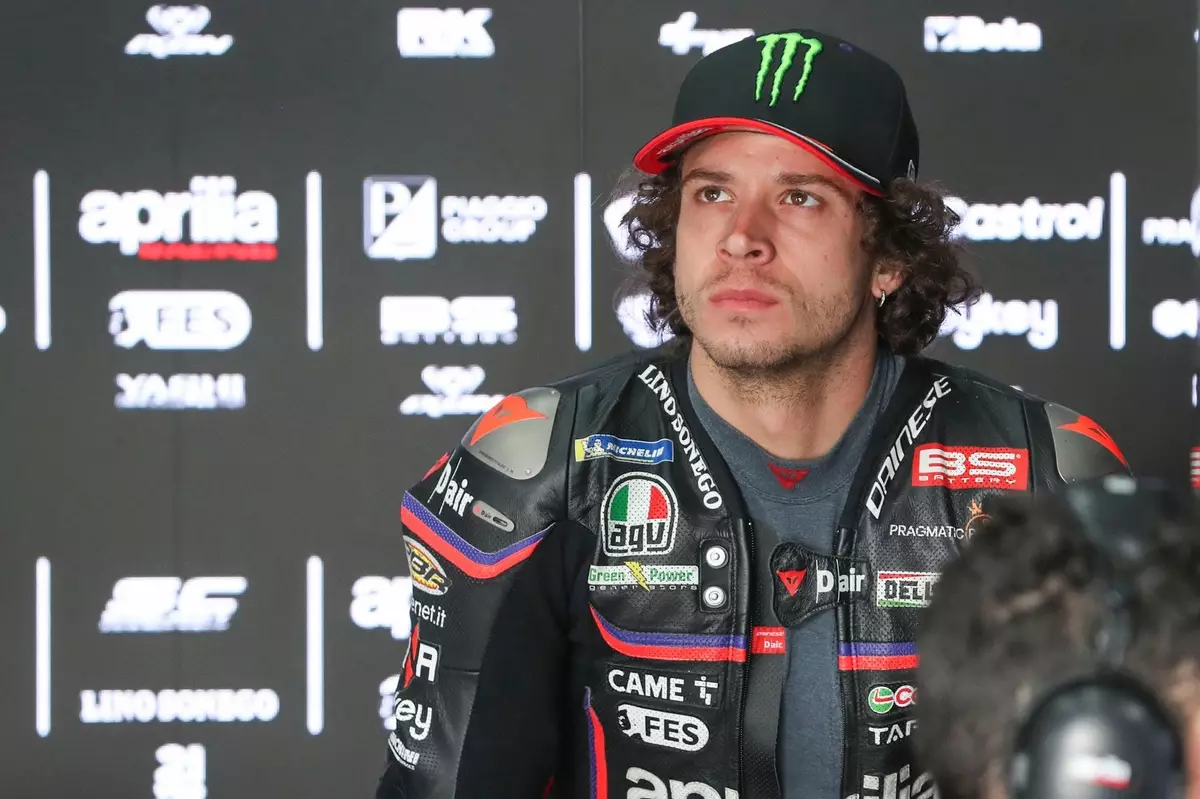In the exhilarating world of MotoGP, few figures are as revered as Valentino Rossi. The seven-time world champion has not only won prestigious titles but has also cultivated a legacy through mentorship, shaping the next generation of riders. One of his most notable mentees, Marco Bezzecchi, recently shared insights on how Rossi’s guidance continues to play a pivotal role in his racing career despite the shift to a different team. As Bezzecchi transitions from the VR46 Ducati team to Aprilia for the 2025 season, the question arises: how does the influence of a mentor like Rossi manifest in a rider’s performance?
Rossi’s involvement in Bezzecchi’s career goes beyond traditional mentorship; it taps into a data-driven approach vital in modern motorsport. Bezzecchi made it clear that while confidentiality surrounds the specific details of the advice he receives, its quality is undeniable. His assertion hints at a sophisticated relationship built on trust, experience, and mutual respect. Rossi, while no longer on the racetrack, proves that his insights remain valuable, showing that mentorship can evolve yet stay impactful.
The Value of Data in MotoGP
In a sport that thrives on precision, data analysis has become a cornerstone of competitive success. The telemetry collected from bikes provides invaluable insights that can dramatically influence racing strategies and enhance a rider’s performance. Amidst this high-tech backdrop, Rossi’s ability to interpret and advise on riding data stands out. While he no longer competes, the knowledge accrued over decades offers invaluable perspectives to current riders. Rossi’s analytical skills, combined with his privileged access to data, make him a powerful asset for Bezzecchi and other riders in the VR46 Riders Academy.
However, it raises an important question: how much access does Rossi have to the telemetry data belonging to his protégé at Aprilia? The confidentiality surrounding team data often creates barriers, making it unclear how much Rossi can influence Bezzecchi’s performance practically. The uncertainty about Rossi’s access is intriguing, as it exemplifies the tension between competitiveness and collaborative mentorship in MotoGP. Bezzecchi’s guarded response suggests that while there is no direct access to his data from Rossi, the advice gleaned from experienced riding still holds substantial weight.
A Mentor in Transition
Rossi’s transition from active racer to mentor and team leader illustrates the shifting dynamics of MotoGP. Since stepping away from competition, he has not only taken on the role of team principal at VR46 but has also engaged in car racing, maintaining his competitive edge in another arena. Despite not frequently being seen in the paddock, his mere presence at events elicits admiration and curiosity. This draws attention not just to his racing past but to his ongoing commitment to nurturing talent.
The separation of his riders across different teams—such as Franco Morbidelli with VR46, Francesco Bagnaia with Ducati, and Luca Marini with Honda—presents challenges and opportunities for collaboration. Rossi’s involvement at the VR46 Ranch, where he trains alongside the academy’s MotoGP riders, showcases a commitment to hands-on mentorship. This environment allows him to continue imparting valuable advice, creating a bond that transcends team affiliations, emphasizing that mentorship in MotoGP is less about direct team support and more about holistic development.
The Impact of Mentorship on Performance
Bezzecchi’s acknowledgment of Rossi’s input highlights the broader concept of how effective mentorship can significantly impact performance. In racing, where milliseconds can make or break a result, the psychological support and strategic insights a mentor provides are invaluable. Rossi’s ability to read the nuances of racing dynamics, combined with his emotional intelligence, helps create a comprehensive framework for riders seeking improvement.
Moreover, as Rossi’s former riders disperse into rival teams, the potential for rivalry blurs alongside the values instilled through mentorship. This dichotomy emphasizes that even in competition, the foundational elements of trust and respect remain invaluable to a rider’s journey. Bezzecchi’s connection to Rossi is not merely professional; it encapsulates a mentorship that shapes identities within the frenetic world of MotoGP.
The facts remain: in the charged atmosphere of MotoGP, mentorship can be a potent tool, fostering growth and resilience among the new breed of racers. Valentino Rossi’s continued involvement, even from the sidelines, illustrates that the spirit of competition is as much about friendship, shared knowledge, and mentorship as it is about winning races. Rossi’s unique ability to guide his mentees through the data-driven landscape of MotoGP underlines the significance of mentorship, proving that the legacy of a champion lives on through those he inspires.

